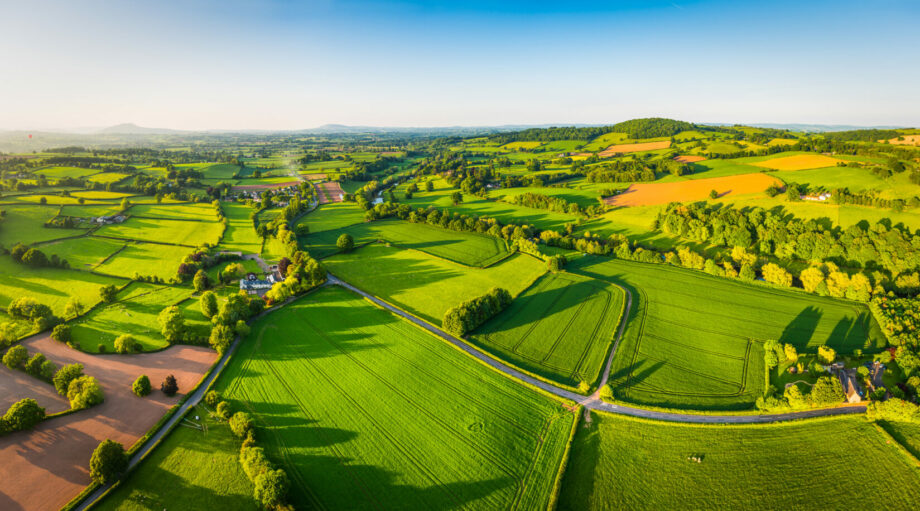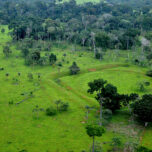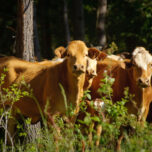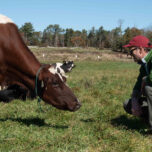February 17, 2023 — 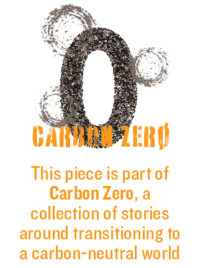 When people think of turning the tide on climate change, we often think of reforming energy use. But there’s another group of actions with big potential for averting climate crisis: improving our interactions with the land. A report released last September by Conservation International in partnership with the Potsdam Institute for Climate Impact Research, WWF and Exponential Roadmap Initiative describes how altering agricultural and other land use practices could make a substantial contribution to stabilizing climate for future generations.
When people think of turning the tide on climate change, we often think of reforming energy use. But there’s another group of actions with big potential for averting climate crisis: improving our interactions with the land. A report released last September by Conservation International in partnership with the Potsdam Institute for Climate Impact Research, WWF and Exponential Roadmap Initiative describes how altering agricultural and other land use practices could make a substantial contribution to stabilizing climate for future generations.
Currently, the way we use land adds some 12.5 gigatons (Gt) of greenhouse gases to Earth’s atmosphere every year, one-quarter of humanity’s total contribution. The biggest opportunities to reduce this come from improved farming and grazing, eating more plant-based diets, reducing food waste, and improving forest management.
The report, “Exponential Roadmap for Natural Climate Solutions,” outlines a specific strategy for bringing net land-sector emissions to zero by 2030 and enlisting land in soaking up another 10 Gt by 2050. The plan focuses on three broad categories: protect “natural lands,” better manage land we use for our own needs and restore damaged land to a healthier condition. Specifically, it describes a need for four key categories of action:
● Boost carbon storage in soil, plants and other natural systems
● Improve food production and consumption
● Tap into traditional practices to improve how we use land
● Stop destroying and start restoring forests
If followed, the researchers say, the roadmap could make a substantial contribution to putting the planet on the path to a more stable climate. It also can provide ancillary benefits in the form of reducing hunger, protecting biodiversity and more.
“In the next decade we need to turn working lands — from agriculture and grazing lands to forestry — from vast emitters of greenhouse gases to enormous stores of carbon. At the same time we must scale up carbon storage in existing ecosystems: forests, wetlands, peatlands and grasslands,” Potsdaam Institute for Climate Impact Research director Johan Rockström writes in a foreword to the report. “If we start today, we can safeguard the climate, our societies, and the Earth for future generations. This is a golden opportunity. Let’s take it.”
Related Posts
Ensia shares solutions-focused stories free of charge through our online magazine and partner media. That means audiences around the world have ready access to stories that can — and do — help them shape a better future. If you value our work, please show your support today.
Yes, I'll support Ensia!